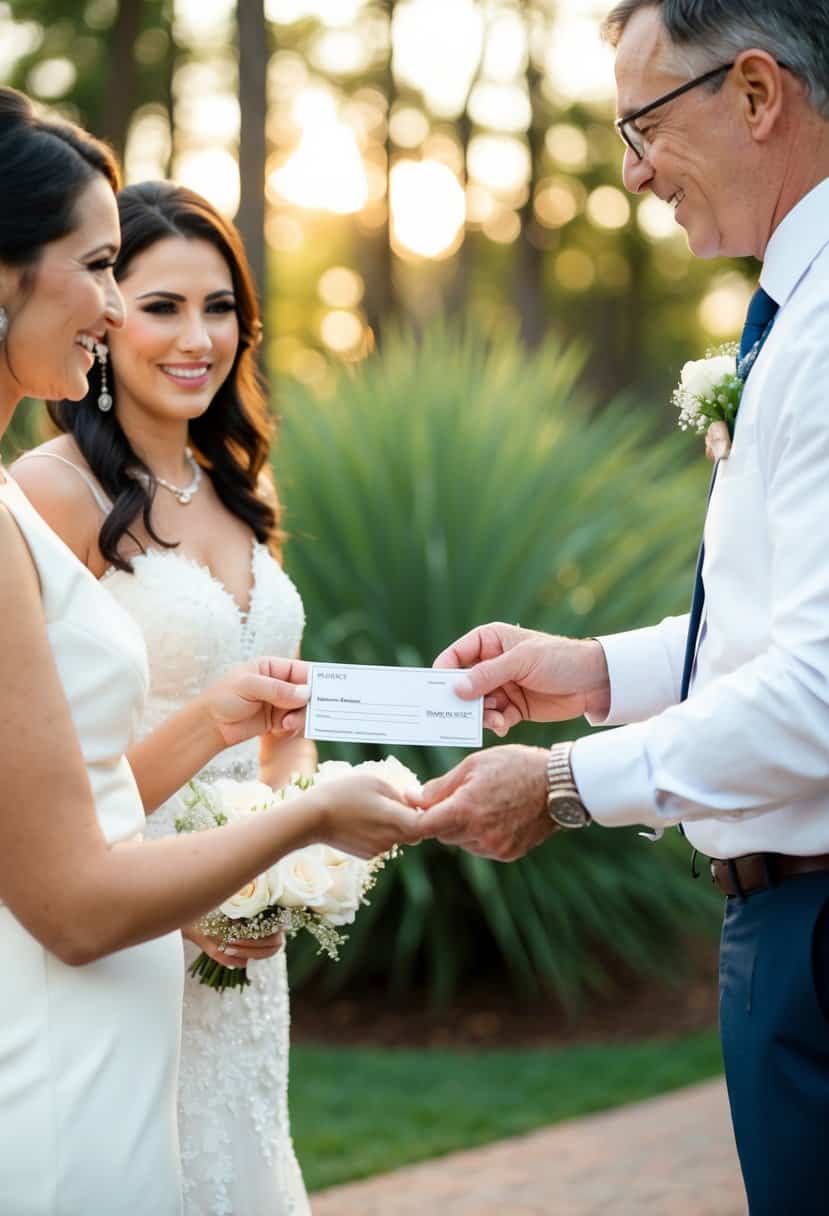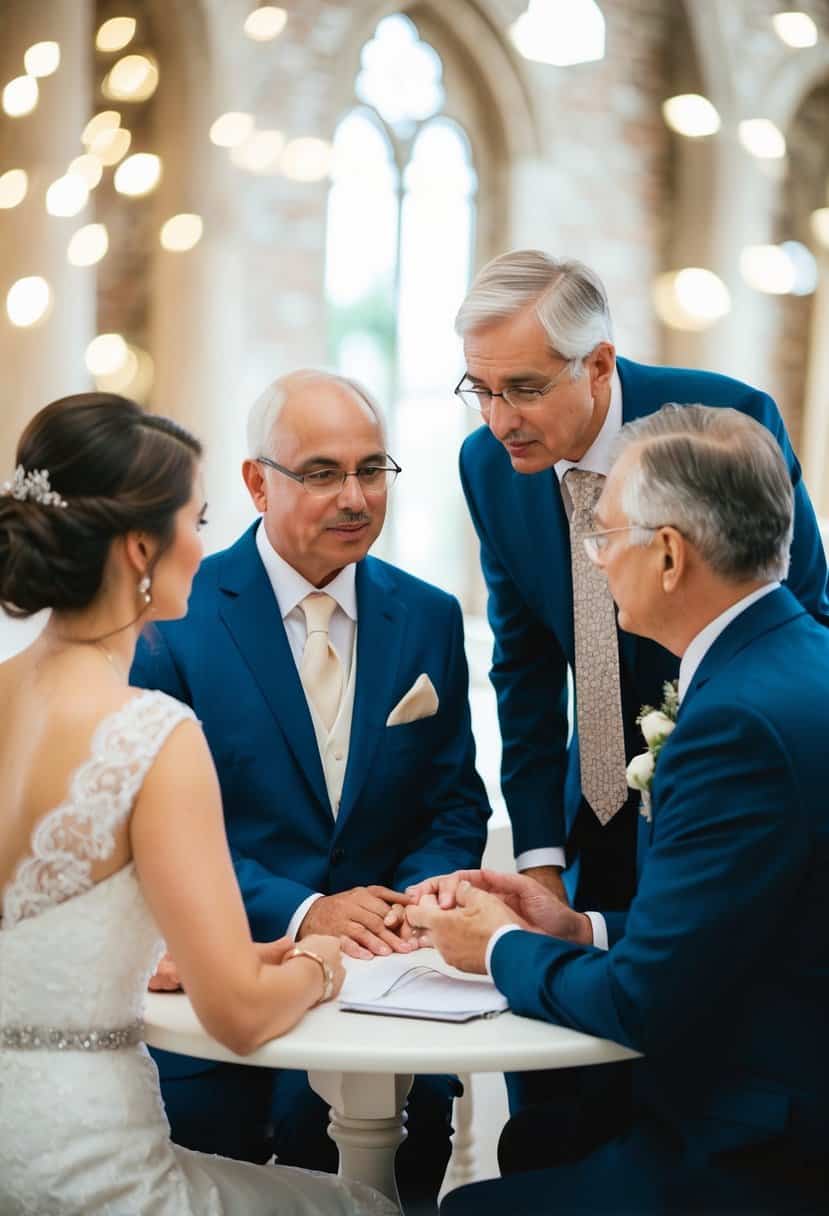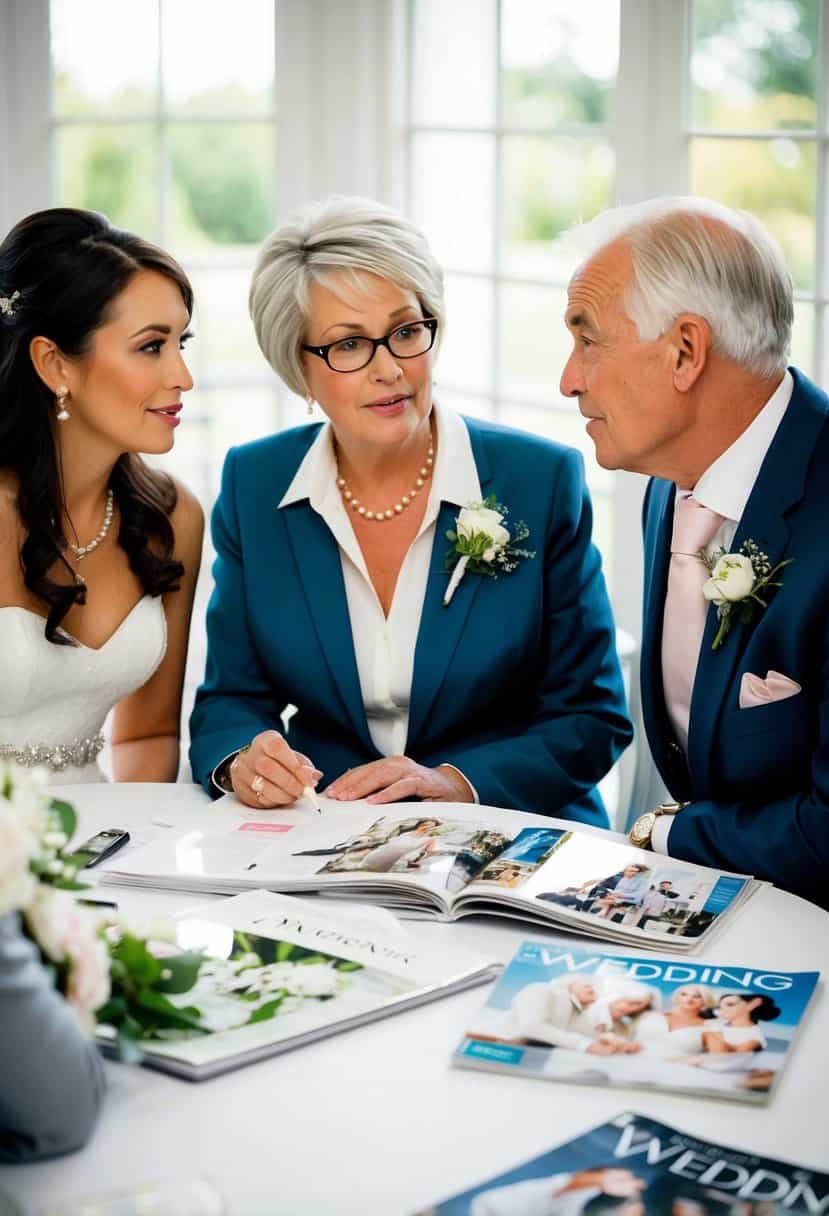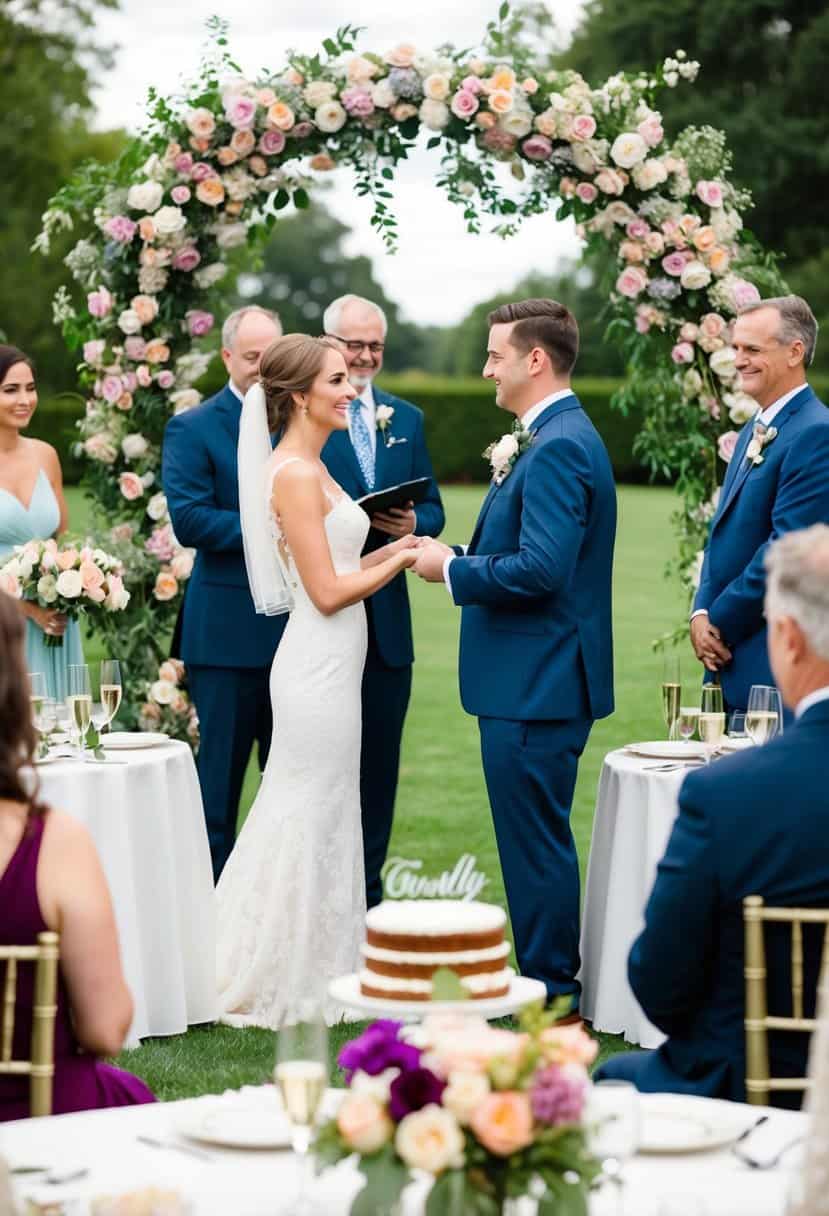Do Brides’ Parents Pay for a Second Wedding? Exploring Traditions
Planning a second wedding can feel different from your first, especially when considering who pays for what. Traditionally, the bride’s family took on most of the wedding costs, but things have shifted over time.
These days, many couples choose to handle the expenses themselves, or share them with both families. This helps keep things flexible and allows you to plan the day exactly as you want it.

When it comes to etiquette, the rules aren’t set in stone. You might find that your parents are willing to contribute, but that doesn’t mean they have to cover everything. Second wedding etiquette suggests that if your family can and wants to help, it’s perfectly fine. Just make sure you have an open conversation about everyone’s expectations and budgets.
Remember, a second wedding offers you more freedom and creativity. Whether you’re funding it yourself or with the help of your loved ones, what’s most important is creating a day that reflects you as a couple.
Traditions and Etiquette for Second Weddings

Navigating a second wedding involves embracing evolving traditions and observing modern etiquette. You might encounter unique considerations around wedding expenses, who pays, and maintaining proper decorum.
The Evolution of Wedding Traditions
In recent times, second weddings have become more personalized. Unlike the traditional first wedding, you have the freedom to keep yours simple or elaborate. The focus is often on making the day meaningful without rigid expectations.
Second weddings sometimes incorporate elements from the first, like exchanging vows and rings, while also allowing for new, personal touches. Customizing your ceremony can make it truly yours and reflect your current life situation.
Family dynamics may change, too. Involving your children or paying attention to how your families blend might become important aspects. Including them can make the day special for everyone involved.
Modern Etiquette for Second Marriages
Etiquette for second marriages has evolved with changing societal norms. Discussing who pays for the wedding is essential. Traditionally, brides’ parents might bear costs, but today, expenses are often shared between partners or the couple covers costs themselves.
When planning, consider notifying your children first about your marriage plans, as this can help set the tone for your blended family. Also, careful thought should be given to wedding party roles and attire. Ensure toasts and speeches are positive and avoid references to previous marriages. Managing these details with tact ensures a memorable and smooth celebration.
For more detailed guidance, resources like Her Norm’s tips and The Knot’s etiquette guide can help.
Financial Responsibilities

Planning a wedding involves various financial aspects, including a clear understanding of the wedding budget and deciding who pays for different parts. Identifying these details can help streamline your preparation.
Overview of Wedding Costs
Weddings can have many expenses, from venue costs to attire. Your wedding budget might include the wedding dress, venues for the ceremony and wedding reception, catering, and florist fees.
A comprehensive budget should also account for attire for the wedding party, including bridesmaid dresses and groomsmen suits.
Consider potential costs for a photographer, entertainment, and transportation. Planning for unexpected expenses can help prevent stress. Using a detailed budget plan can make managing these costs more manageable and ensure that your financial responsibilities align with your expectations.
Determining Who Pays for What
Traditionally, the bride’s family would cover a significant portion of the wedding costs. This might include the venue, catering, and the bride’s outfit. For a second wedding, this tradition may change depending on each family’s preferences and financial situation.
Communication between families is key to clarifying who pays for specific aspects. For example, the groom’s family might handle the rehearsal dinner or contribute to other expenses. Discuss everyone’s ability to contribute to ensure realistic planning and financial harmony during the wedding planning process. Consider the personal financial situation and preferences of both families while deciding who pays for what.
Planning Considerations for a Second Wedding

When planning a second wedding, you might consider questions about the guest list, vendors, and personal details. It’s important to think about how different this celebration might be compared to your first wedding. Let’s dive into some key elements that can make your second wedding special and unique.
Guest List and Wedding Party
For a second wedding, you have the freedom to keep the guest list small and intimate or invite a larger group of friends and family. Decide if you want a traditional wedding party or prefer a more casual approach.
Some couples might skip having a flower girl or ring bearer or may choose close friends as attendees instead.
Including kids, if there are any from previous marriages, can be meaningful. You might even have them play special roles in the ceremony. Communicate clearly with guests about what to expect, so everyone feels informed. This will help create a relaxed and enjoyable atmosphere for your celebration.
Choosing the Right Vendors
Selecting the right vendors is crucial for a smooth event. If you enjoyed working with the same vendors from your first wedding, you might consider hiring them again.
Otherwise, search for local professionals who understand your vision. Wedding planners can be especially helpful in tailoring a second wedding, ensuring details align with your preferences.
Focus on your choice of photography and videography, as these memories are lasting. Discuss your ideas and wishes with vendors so they can provide tailored services that meet your needs.
Don’t forget about catering and floral arrangements, as these elements can significantly impact your event’s vibe.
Special Touches for the Second ‘I Do’
Personalize your second wedding to reflect your current relationship. Some couples opt for unique elements, like writing their own vows, having non-traditional venues, or incorporating hobbies into the theme.
Family traditions might play a role, but do what feels right for you this time around.
A blend of familiar and unique elements makes the day memorable. You might explore personalized music playlists or custom decorations to showcase your personality. This wedding allows you to truly customize the experience, making it deeply personal and meaningful for everyone involved.
Celebrations Surrounding Second Weddings

In a second wedding, personal touches might be more pronounced. Many couples make unique choices that reflect their experiences and preferences, enhancing the celebration’s intimacy and meaning.
The Pre-Wedding Events
Before the main event, there are several pre-wedding traditions you can enjoy. An engagement party is a wonderful way to share your joy with loved ones. This gathering can be intimate or grand, depending on your preferences.
A bridal shower also offers a special time for your close friends and family to celebrate. Unlike the first wedding, you might find these gatherings more relaxed and focused on fun rather than tradition. Including everyone in these pre-wedding events can create beautiful memories.
The Big Day: Ceremony and Reception
On your wedding day, both the ceremony and reception can be tailored to reflect your current life’s chapter. You might choose a unique setting or theme that suits your style.
Perhaps an outdoor ceremony followed by a relaxed indoor reception.
For the wedding cake, consider flavors and styles that hold personal significance. The guest list can be more flexible too. You can invite those who matter most, creating an intimate and meaningful celebration. This is your chance to embrace individuality and make the day truly yours.
After the Wedding: Honeymoon and Beyond
Post-wedding plans can be just as exciting. A honeymoon tailored to your shared interests can bring relaxation after the big day.
Whether it’s a beach getaway or a mountain retreat, this time together can mark the start of your new journey.
Don’t forget about wedding gifts. These might now be more practical, focusing on experiences rather than traditional household items.
Beyond the honeymoon, consider planning ongoing celebrations to keep the joy alive. Regular gatherings with loved ones can reinforce the special bonds formed throughout your wedding journey.
Legal and Practical Considerations

When planning a second wedding, it’s important to understand the legal aspects, like obtaining a marriage license, and ensuring that all necessary documentation is in order.
Addressing these matters early can streamline your preparations and avoid last-minute stress.
Marriage License and Documentation
For your second marriage, securing a marriage license is a key step. You will need to check the requirements in your state or country, as they can vary.
Typically, you and your partner will have to provide identification, proof of any previous divorce if applicable, and perhaps pay a small fee.
It’s a good idea to contact your local registrar or visit their website to know what specific documents you’ll need.
If you are having a religious ceremony, additional paperwork might be required by your place of worship.
Don’t forget about your wedding registry and wedding rings—these are practical elements that fall outside of legalities but are significant parts of your planning process.
Addressing the Legalities
Don’t overlook legal details beyond the marriage license. Consider any marital agreements you might want, such as a prenuptial agreement.
Also, ensure that your officiant’s services are legally recognized in your state. Some places might require the officiant to register with local authorities to perform the ceremony legally, so double-check this beforehand.
Discuss officiant fee arrangements early to avoid misunderstandings. By addressing these legalities confidently, you ensure that your wedding is not just a memorable occasion, but a legally sound event as well.



